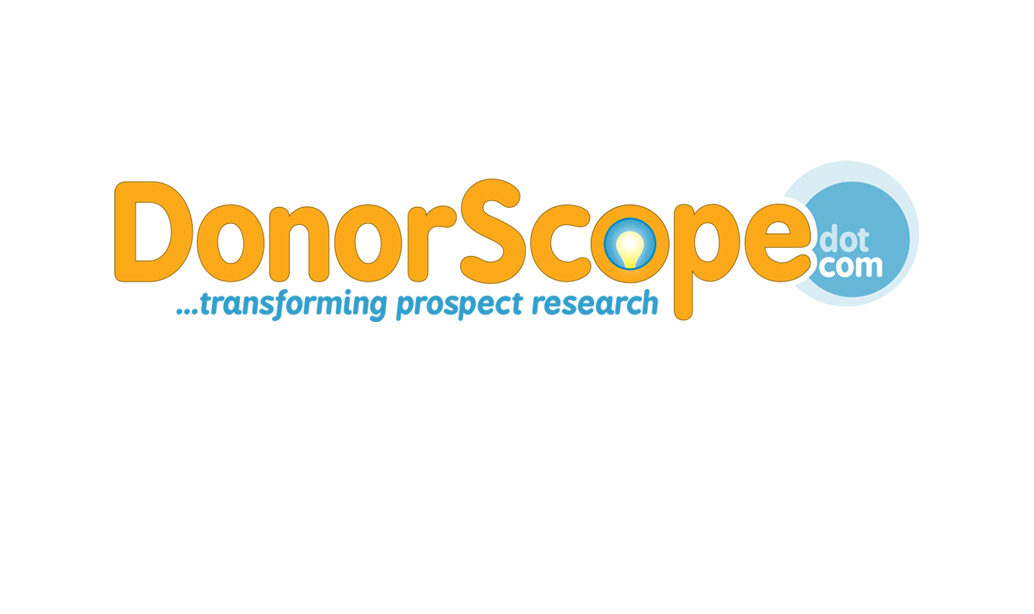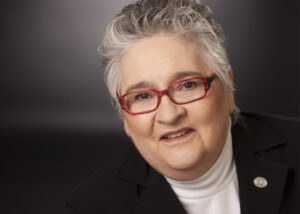DonorScope – Should You Wealth Screen Religious Givers?

DonorScope – Should You Wealth Screen Religious Givers is veteran fundraiser Linda Lysakowski’s take on inspiring people of faith to make major gifts. Here’s what Linda has to share:
Regarding the question, “Should you wealth screen religious givers” the answer is an unequivocal YES! Set aside your piety and allow me to make my case.
While many of us in the Christian realm are familiar with the story of the widow’s mite and we all agree that giving from your all instead of from your surplus is a commendable practice, we need to face the fact that an place of worship full of those who give small amounts of money are not going to help that place of worship raise millions of dollars. So, it is important to know the capability of your donors.
There is an axiom in major gift fundraising, called the LAI principle. Simply put, you cannot raise a major gift from a member or donor, unless you can identify these three things:
- Linkage
- Ability
- Interest
If you are a church, synagogue, temple, or member-based place of worship, the Linkage part is easy—if they are a member of your place of worship, they have the needed linkage. If you are a faith-based community organization, you may have to work on identifying people that you have a connection with, and who could be major donors to your organization.
The Ability part, believe it or not, is probably the easiest part. There are lots of programs that can help you identify people of wealth. You may wonder—is this ethical? Rest assured, this data is all found in public information. And trust me, if you are not doing this research, others in your community are, and may be getting those major gifts you could be getting from these people.
DonorScope – Wealth Screening Religious Givers
There are several ways to obtain this information. Using DonorScope, you can run a list of your current members/donors and determine their potential to give. DonorScope is a prospect research platform that ensures nonprofits identify and are properly introduced to donors who give major gifts. It has three key features:
Select Prospects
Download complete contact information of major donors whose net worth exceeds $1,000,000 who live across town or the nation.
Append Prospects
Add comprehensive wealth & financial information to each person or family in your existing church directory.
Compile Prospects
Create lists of known community champions, board members & major donors who could join your nonprofit by sharing a major gift.
You will probably be surprised to find that some people are already supporting you at levels over and above what their means would indicate. These are the people who are committed to your house of worship and giving at levels that indicate a real passion for their faith. You will want to involve these people in spreading that passion to other members, donors, and prospective donors.
VISIT HERE TO LEARN MORE AT A 2-DAY MAJOR GIFTS RAMP-UP EVENT
On the other hand, you will almost certainly find that you have members or donors who are capable of giving much more substantial gifts than they are currently giving. These are the people you will put on a list of those to be cultivated and involved so you can create more awareness of your needs. I will talk more about donor cultivation in a future blog, but building relationships is the most important part of fundraising.
If yours is a ministry serves community needs, you probably have donors who are not necessarily members and may not even be members of your faith. They are believers in your mission to feed the hungry, help the immigrants, minister to prisoners, house the unhoused in your community, etc. In this case your market is the general population, and you can use DonorScope to find people of wealth in your community who may be passionate about your mission and have the ability to give major gifts. As I mentioned before, donor research is a common practice in the nonprofit world, and is completely ethical because the information gained is all from public records, such a property values.
Wealth Screening
Once you have a list of prospective major donors, what do you do with the list? First, present this list to your board or other volunteers—maybe you have a Stewardship Council, a Development Committee, or a group of volunteers who know people in your membership and/or your community. Review this list and see if there are names they recognize. What do they know about these people? Some may have the ability but also have extreme circumstances that may not permit them to give at this time. Others may have recently acquired more assets than your initial research shows. Others may have other philanthropic interests that may have more priority than your place of worship.
Prepare a list of the prospective donors you’ve identified with the amount your electronic research suggests asking these donors for. Call together a small group of volunteers and staff who know your congregation well enough to provide the additional information that will be helpful in determining the amount you will ask these donors to give. It is best to do these screening sessions in small groups so members of the group will feel comfortable discussing ask amounts. The members of the screening team may also have knowledge of the interests and passions of the prospective donors. After you do a series of screening meetings, you will be able to prioritize your list into A, B, and C prospects, so you can focus first on the A List for major gifts before going to your entire congregation. Always stress to people in this screening meeting that you are discussing confidential information, and they are expected to keep discussions within the room and assure them that we are not asking them to reveal confidential information.
VISIT HERE TO LEARN MORE AT A 2-DAY MAJOR GIFTS RAMP-UP EVENT
One example of how helpful these DonorScope based screening meetings can be: I was helping a faith-based private school who needed to raise $12,000,000 for capital and endowment needs. Among the donors who had been identified was a successful surgeon whose children attended the school. Knowing that this surgeon could be a major donor, the staff and consultant had initially placed him in the “top ten” list. However, at a screening meeting, another physician in the room said simply, “I don’t think this is a good time to approach this donor.” Sensing that he knew something that he didn’t want to reveal to the group, the I said, “Fine, we will put him the list to approach later in the campaign.” This turned out to be the right move, because it was soon publicly revealed that the surgeon was going through a very messy divorce. By waiting to approach him until after the dust settled, the school was able to receive a healthy donation instead of the outright “no” they probably would have received if they approached him prematurely.
In a future blog, I will delve more into involving these prospective donors in your place of worship. But first, let’s refine the list we have. You will want to prioritize the list by the amount of the gift you will be asking for. If you are raising money for a comprehensive campaign, a typical range for a major gift might be five to ten times the amount they are giving on an annual basis, if they are already donors. If they are not donors, try to determine the amount they are giving to similar organizations, or base your “ask amount” on the amount of assets and income they have. This is where the consultant will help you establish ask amounts.
You also want to determine if the people on your list might be potential volunteers to help you raise money during your Comprehensive (Major Gifts/Capital/Endowment) Campaign. And you will want to identify the best person to make the ask—usually this is the person who knows them best. You might also determine if this potential donor is more likely to respond to a clergy person or a layperson. And if there is a particular part of your campaign this donor is likely to want to support. Some people are more interested in assuring your programs and day-to-day operations are well funded in order to serve your people. Others may have more of an interest in the capital needs, particularly if naming opportunities are available. Still others will be interested in ensuring the future of your organization by funding your endowment needs. And don’t forget that some people will be interested in all three and will want to support them all! Don’t underestimate people!
DonorScope – Should You Wealth Screen Religious Givers was first posted at NANOE
For more articles like DonorScope – Should You Wealth Screen Religious Givers VISIT HERE
 LINDA LYSAKOWSKI is one of only sixty-seven people worldwide to hold the Advanced Certified Fundraising Executive designation. She has been a speaker at local, regional, and national fundraising conferences for more than twenty years. She was recently named America’s Fundraiser by
LINDA LYSAKOWSKI is one of only sixty-seven people worldwide to hold the Advanced Certified Fundraising Executive designation. She has been a speaker at local, regional, and national fundraising conferences for more than twenty years. She was recently named America’s Fundraiser by 